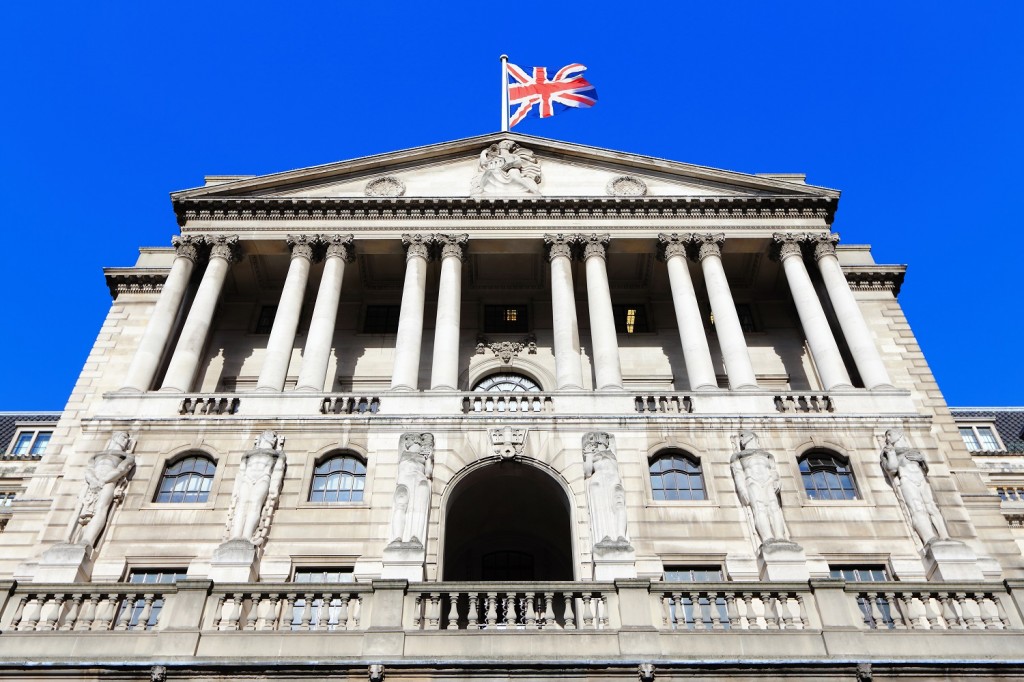
The Bank of England kept interest rates level at 5.25%, its fifth consecutive hold.
Despite more positive inflation figures emerging yesterday, the BoE’s Monetary Policy Committee voted 8 to 1 to keep rates level. One member voted to reduce rates by 0.25 percentage points.
This indicates a less hawkish view on interest rates, with two MPC members voting for rate rises at the last BoE meeting.
A consensus is now forming that BoE will start to cut rates, potentially as early as the summer. In its minutes the BoE notes that since the previous MPC meeting “Inflationary pressures have continued to abate, though by slightly less than expected”.
However, it more cautious words on the inflationary pressures that still persist in the economy, may suggest that it will not be rushing into a rate cut. While the MPC notes that the Consumer Price Index is projected to fall below its 2% target in the second quarter of this year, it stresses that it does not want a rate cut to add inflationary pressures back into the economy again.
The BoE says: “The Committee has judged since last autumn that monetary policy needs to be restrictive for an extended period of time until the risk of inflation becoming embedded above the 2% target dissipates.”
The Bank also noted that despite yesterday’s fall “key indicators of inflation persistence remain elevated”. It adds: ““Material risks remain, notably from developments in the Middle East including disruption to shipping through the Red Sea.”
Although it was widely expected that rates would remain on hold today, many in the mortgage industry had been calling for more clarification from the Bank on when it will start to reduce rates again.
However the BoE refused to be drawn to any timeline, noting that it would continue to monitor “indications of persistent inflationary pressures and resilience in the economy as a whole”. It adds: “On that basis, the Committee will keep under review for how long Bank Rate should be maintained at its current level.”
SPF Private Clients chief executive Mark Harris called for “bolder” action from the MPC: “With inflation dipping to 3.4 per cent, speculation is growing as to when the Bank of England will start cutting interest rates. It is time for the rate setters to be bold and start reducing rates at the next meeting, increasing borrower confidence and giving the housing market a welcome boost.”
He adds that he expects the Bank Rate to be close to 4 per cent by the end of the year, assuming inflation continues to move towards its 2 per cent target.
“As far as mortgage pricing is concerned, what the Bank of England does with base rate is only part of the picture. If swap rates, which underpin the pricing of fixed-rate mortgages, edge further downwards, lenders will introduce cheaper mortgage rates, increasing the choice for borrowers at more palatable pricing. Lenders are certainly keen to lend and want to do more business after a disappointing 2023.”
Interactive Investor senior personal finance analyst Myron Jobson, says: “The latest hold on interest rates underscores the Bank of England’s caution regarding inflation. Cutting the base rate too soon risks undoing the colossal effort it took to reduce inflation from its peak of 11.1% in October 2022. With inflation still almost double the Bank of England’s 2% target, the battle against inflation has not yet been won.
“But the green shoots are sprouting when it comes to the cost of living. Crucially, core inflation, which strips out volatile components such as food and energy, fell significantly last month, helping alleviate fears that high inflation has become deeply entrenched in the UK economy.”
He points out that while interest rates have changed for months, mortgage rates have been fluctuating, with a “hokey-cokey” mortgage market. “Many lenders have swiftly cut rates following yesterday’s inflation reading, raising hopes that interest rates will come down faster than expected this year.”
North London estate agent and former RICS residential chairman Jeremy Leaf says: “The Bank’s decision to hold rates is not surprising but the pressure is building for a cut sooner rather than later.
“The inflation figure always helps set the trajectory for rates and its present level, with the prospect of further drops, will probably force the Bank’s hand at some point.
“Further falls in the pace of wage growth in particular will contribute to the decision making but we have already noticed mortgage payments at least are beginning to fall again as they are not bound by the same constraints, and are certainly helping to build confidence in the housing market to take on debt.”
MT Finance director Tomer Aboody adds: “This decision is likely to be one of the final rate holds for now, especially as we are seeing other countries such as Switzerland cutting their rates.
“With inflation coming under control and a general election looming, some rate reductions in the next few months would be welcome, boosting confidence and activity in the housing market.”
Anderson Harris director Adrian Anderson says that the message from the BoE was “not yet” when it comes to interest rate cuts. “The Bank of England’s sole focus is to get the rate of inflation down to 2% and it appears to remain committed to that task, taking a cautious approach to reducing the rate.”
He adds: “The last six months have indeed been turbulent times for those seeking a mortgage or remortgage. As spring begins, we are seeing greater alignment between the Bank of England and the markets. We seem to be in a better position than last autumn, yet the mortgage landscape remains challenging for those seeking a mortgage or new deal this year. Products are moving fast, and applicants are having to make decisions quickly. Many borrowers are choosing 2-year fixed rate mortgages with one hopeful eye on a falling base rate in the near future.”



